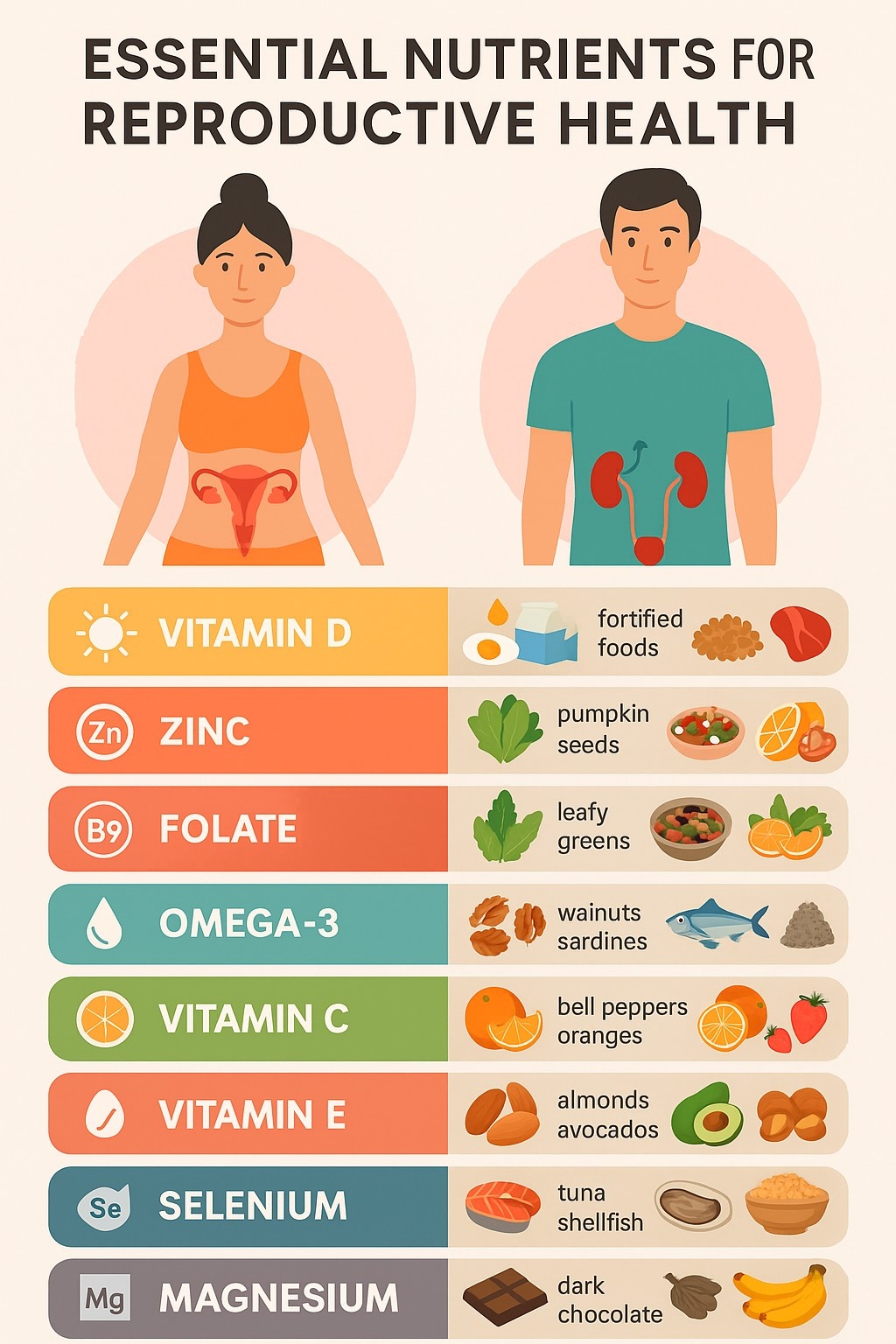Maintaining a balanced diet is vital for supporting reproductive and hormonal health across all stages of life. What we eat directly impacts our endocrine system—the network of glands responsible for producing and regulating hormones. This, in turn, affects fertility, menstrual health, libido, mood, and overall well-being in both men and women.
The Hormone–Nutrition Connection
Hormones are chemical messengers that require certain nutrients to be synthesized, activated, and transported throughout the body. Deficiencies or excesses in these nutrients can throw off hormonal balance, leading to symptoms such as irregular periods, low libido, fatigue, or fertility challenges.
Macronutrients and Hormones:
- Healthy fats (like omega-3 fatty acids from flaxseed, walnuts, and fish) are crucial for hormone production, especially estrogen and testosterone.
- Proteins support cell repair and regulate insulin—a hormone essential for metabolism.
- Complex carbohydrates (like oats, legumes, and vegetables) help balance cortisol and insulin levels, unlike refined sugars that may spike inflammation.
Learn more about the endocrine system →
Key Nutrients That Support Hormonal & Reproductive Health
- Zinc
- Supports sperm quality in men and ovulation in women.
- Found in pumpkin seeds, chickpeas, meat, and dairy.
- Vitamin D
- Helps regulate sex hormones and is linked to fertility in both sexes.
- Sunlight exposure and fortified foods help meet daily needs.
- Folate (Vitamin B9)
- Critical for reproductive health and preventing birth defects.
- Found in leafy greens, lentils, and citrus fruits.
- Magnesium
- Supports thyroid and adrenal function.
- Found in nuts, seeds, bananas, and dark chocolate.
- Antioxidants (Vitamin C, E, Selenium)
- Protect reproductive organs and sperm cells from oxidative stress.
- Found in berries, nuts, and colorful vegetables.
Foods That Help Balance Hormones
- Cruciferous vegetables (like broccoli and cauliflower) help detox excess estrogen.
- Avocados and olive oil help reduce inflammation and support progesterone.
- Fermented foods (like yogurt and kimchi) improve gut health, which plays a role in hormone regulation.
- Seeds like flax, sesame, and sunflower may assist in hormone modulation naturally.

Foods That May Disrupt Hormonal Health
- Refined sugars and processed foods: Spike insulin and increase inflammation.
- Trans fats: Found in fried and packaged snacks; linked to hormonal imbalances.
- Alcohol and excessive caffeine: May suppress reproductive hormone production.
When to Seek Medical Advice
If you experience prolonged symptoms such as:
- Irregular or missing periods
- Mood swings
- Unexplained weight gain/loss
- Low libido
- Fertility struggles
…it’s wise to consult a healthcare provider. Diet is just one part of the hormonal health puzzle, and sometimes clinical support is necessary.
Final Thoughts
Your diet plays a powerful role in maintaining hormonal equilibrium and supporting reproductive wellness. By focusing on nutrient-dense, whole foods and limiting processed items, you can naturally nurture your hormonal system and overall health. While no single food is a miracle cure, consistent, mindful eating habits create a solid foundation for balance and vitality.



